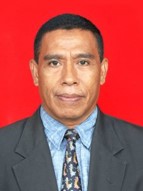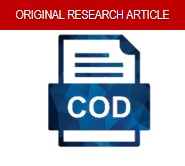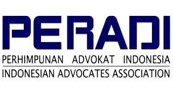Assessing the Effectiveness of Sukoharjo Bawaslu in Electoral Oversight Amid Institutional Constraints
DOI:
https://doi.org/10.46924/jihk.v7i1.310Keywords:
Supervision, Election Supervisory Body, Institutions, DemocracyAbstract
This study is driven by the pressing need for effective and independent election oversight to ensure the 2024 General Election is conducted in a democratic, honest, and fair manner. The primary focus is to evaluate the institutional existence and performance of the Sukoharjo Regency General Election Supervisory Body (Bawaslu) in executing its supervisory functions across all stages of the electoral process, as well as to identify the strategies employed for preventing and addressing electoral violations. Utilizing an empirical legal approach, this research employs data collection methods including interviews, document analysis, and field observations. The findings reveal that Bawaslu Sukoharjo has generally fulfilled its duties and exercised its authority in accordance with constitutional mandates and prevailing regulations. Nevertheless, the institution continues to encounter a range of structural, cultural, and technical challenges—most notably, limitations in human resources, budget constraints, and low levels of public participation. In conclusion, the effectiveness of electoral supervision is strongly influenced by the enhancement of institutional capacity and the development of synergistic collaborations with other key stakeholders within the local electoral democracy ecosystem.
Downloads
References
Journals
Amalia, Gina, Nadila Nadila, Sonia Sonia, and Aris Sunandar Suradilaga. “Urgensi Pembentukan Kampung Pengawasan Badan Pengawas Pemilu Terhadap Pengawasan Partisipatif Pada Provinsi Kalimantan Tengah Dalam Menghadapi Pemilihan Kepala Daerah Serentak Tahun 2024.” Konsensus: Jurnal Ilmu Pertahanan, Hukum Dan Ilmu Komunikasi 2, no. 1 (2025): 8–19. https://doi.org/10.62383/konsensus.v2i1.561.
Asmorojati, Anom Wahyu, and Dian Mutiara Harianja. “Eksistensi Badan Pengawas Pemilihan Umum Dalam Pencegahan Praktik Politik Uang Pada Pilkada 2020 Di Kabupaten Klaten.” Wajah Hukum 8, no. 1 (2024): 264–72. http://dx.doi.org/10.33087/wjh.v8i1.1336.
Fitriyanti, Liza, Syamsiar Syamsiar, and Rusli Engka. “Eksistensi Badan Pengawas Pemilu Dalam Pengawasan Pemilihan Umum Presiden Dan Pemilihan Legislatif Tahun 2019 Di Kabupaten Wajo.” Jurnal Ada Na Gau: Public Administration 2, no. 1 (2021): 366–76.
Mardiyati, Siti, and Indrajaya Indrajaya. “Eksistensi Badan Pengawas Pemilihan Umum Dalam Penyelenggaran Pemilihan Umum Menurut UU Nomor 7 Tahun 2017 Tentang Pemilihan Umum.” Jurnal Hukum Legalita 3, no. 2 (2021): 131–141. https://doi.org/10.47637/legalita.v3i2.436.
Muhammad, Badru Zaman. “Efektivitas Badan Pengawas Pemilu (Bawaslu) Dalam Penyelenggaraan Pemilihan Umum.” Khazanah Multidisiplin 4, no. 2 (2023): 443–67. https://doi.org/10.15575/kl.v4i2.30139.
Puspita, Puput Sari, and Arfa’i Arfa’i. “Analisis Terhadap Kedudukan Badan Pengawas Pemilihan Umum Dalam Sistem Ketatanegaraan Indonesia.” Limbago: Journal of Constitutional Law 3, no. 1 (2023): 1–21. https://doi.org/10.22437/limbago.v3i1.20115.
Rahmiz, Faramadinah, and Muhammad Yasin. “Tugas Dan Wewenang Badan Pengawas Pemilihan Umum Dalam Mengatasi Sengketa Pemilu Presiden Dan Wakil Presiden.” Al-Ishlah: Jurnal Ilmiah Hukum 24, no. 1 (2020): 163–87. https://doi.org/10.56087/aijih.v24i1.55.
Salurante, Belona Danduru, Andi Dewi Primayanti, and Isman Bruaharja. “Kedudukan Badan Pengawas Pemilu Berdasarkan Undang-Undang Dasar 1945.” Al Manhaj: Jurnal Hukum Dan Pranata Sosial Islam 4, no. 2 (2022): 473–480. https://doi.org/10.37680/almanhaj.v4i2.1689.
Shalihah, Aini, and Ernawati Huroiroh. “The Optimization of Bawaslu’s Role in the 2024 Simultaneous Elections.” Jurnal Konstitusi 21, no. 3 (2024): 501–17. https://doi.org/10.31078/jk2139.
Sugara, Harry, Fitri Mutmainnah, and Della Nor Safitri. “Pendidikan Politik Lintas Generasi Dalam Membangun Partisipasi Politik Menghadapi Suksesi Tahun Politik.” Jurnal Pendidikan Kewarganegaraan 8, no. 1 (2024): 118–128. https://doi.org/10.31571/jpkn.v8i1.6493.
Sumodiningrat, Aprilian. “Menakar Transformasi Bawaslu Menjadi Lembaga Independen Peradilan Pemilukada.” Jurnal Konstitusi 19, no. 1 (2022): 180–201. https://doi.org/10.31078/jk1918.
Tajuddin, Muhammad Syariat, Anace Langi Joan, and Nur Fitrah. “Eksistensi Komisi Pemilihan Umum Dan Badan Pengawas Pemilu Kabupaten Mamasa Terhadap Penyelenggaraan Pemilihan Umum Presiden Dan Wakil Presiden Tahun 2019.” Journal Peqguruang: Conference Series 2, no. 2 (2020): 355–60. http://dx.doi.org/10.35329/jp.v2i2.1323.
Winarno, Edi, Danes Jaya Negara, and Luluk Tri Harinie. “Partisipasi Tokoh Adat Sebagai Strategi Pengawasan Bawaslu Kota Palangka Raya Dalam Pemilihan Kepala Daerah Dan Pemilu Di Kota Palangka Raya.” Restorica: Jurnal Ilmiah Ilmu Administrasi Negara Dan Ilmu Komunikasi 9, no. 1 (2023): 49–55. https://doi.org/10.33084/restorica.v9i1.4831.
Thesis
Aldo, Depriansyah. “Peran Tokoh Adat Dalam Pendidikan Politik Masyarakat: Fenomena Pada Desa Gunung Sugih Baru Kecamatan Tegineneng Kabupaten Pesawaran.” Universitas Islam Negeri Raden Intan Lampung, 2024. https://repository.radenintan.ac.id/36753/.
Books
Olson, Kevin. “Deliberative Democracy.” In Jürgen Habermas: Key Concepts, edited by Barbara Fultner, 140–55. Buckinghamshire: Acumen Publishing Ltd., 2011. https://doi.org/10.1017/UPO9781844654741.008.
Downloads
Published
How to Cite
Issue
Section
License
Copyright (c) 2025 Etik Sri Lestari, Femmy Silaswati Faried, Aziz Zaelani

This work is licensed under a Creative Commons Attribution 4.0 International License.
Authors who publish with this journal agree to the following terms:
- Copyright on any article is retained by the author(s).
- The author grants the journal, the right of first publication with the work simultaneously licensed under a Creative Commons Attribution License that allows others to share the work with an acknowledgment of the work’s authorship and initial publication in this journal.
- Authors are able to enter into separate, additional contractual arrangements for the non-exclusive distribution of the journal’s published version of the work (e.g., post it to an institutional repository or publish it in a book), with an acknowledgment of its initial publication in this journal.
- Authors are permitted and encouraged to post their work online (e.g., in institutional repositories or on their website) prior to and during the submission process, as it can lead to productive exchanges, as well as earlier and greater citation of published work.
- The article and any associated published material is distributed under the Creative Commons Attribution 4.0 International License



 Sinta ID:
Sinta ID: 


















